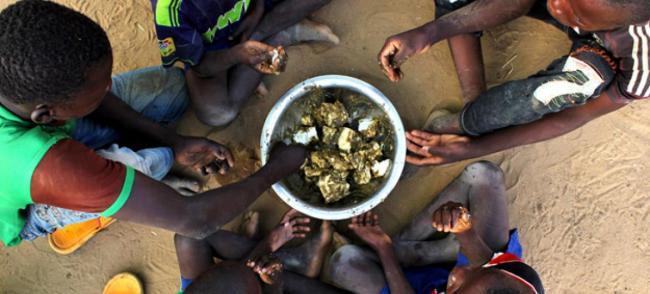
Health experts at UN meeting press for action to address ‘double burden’ of malnutrition in Africa
New York, Apr 21 (IBNS): Africa’s attempts to achieve health for all by 2030 could be threatened unless the continent address the twin challenges of undernutrition and obesity, experts attending a United Nations meeting in Nairobi this week have warned.
Undernutrition occurs when people do not get enough to eat, resulting in conditions such as wasting, which is when a child becomes dangerously thin. On the other hand, people who are obese have body fat levels that may impair their health.
The World Health Organization (WHO) Regional Office for Africa calls these two issues “the double burden of malnutrition.”
Together with diet-related noncommunicable diseases (NCDs) such as diabetes, they are leading to “catastrophic costs” for citizens, communities and national health care systems across the continent.
A 2016 study showed an estimated 59 million children in Africa were stunted, which is when a child is too short for their height: another condition caused by undernutrition.
Additionally, 14 million children suffered from wasting, which the WHO Office said is a strong predictor of mortality among children under five.
Meanwhile, 10 million Africans were overweight, which is nearly double the number from 2000, while a 2014 report estimated that five per cent of men and 15 per cent of women over 18-years-old were obese.
“Improving nutrition sustainably requires consideration of how to produce, deliver, and ensure access to healthy diets and essential nutrients, not just greater quantities of food,” said Dr. Felicitas Zawaira, Director of the Family and Reproductive Health Cluster at the WHO Regional Office.
In 2015, Heads of State adopted the 17 Sustainable Development Goals (SDGs) which seek to bring about a more just and equitable world for all people and the planet by 2030.
SDG 3, which focuses on good health and well-being, calls for achieving universal health coverage by this deadline, among other targets.
“Tackling all forms of malnutrition for the achievement of [universal health coverage] and the health-related SDGs requires remedial actions from multiple sectors and on many fronts,” Dr. Zawaira stated.
Measures include implementing policies and action to control the marketing and consumption of unhealthy foods, or to promote consumption of healthy foods through taxation and subsidies.
Support Our Journalism
We cannot do without you.. your contribution supports unbiased journalism
IBNS is not driven by any ism- not wokeism, not racism, not skewed secularism, not hyper right-wing or left liberal ideals, nor by any hardline religious beliefs or hyper nationalism. We want to serve you good old objective news, as they are. We do not judge or preach. We let people decide for themselves. We only try to present factual and well-sourced news.







